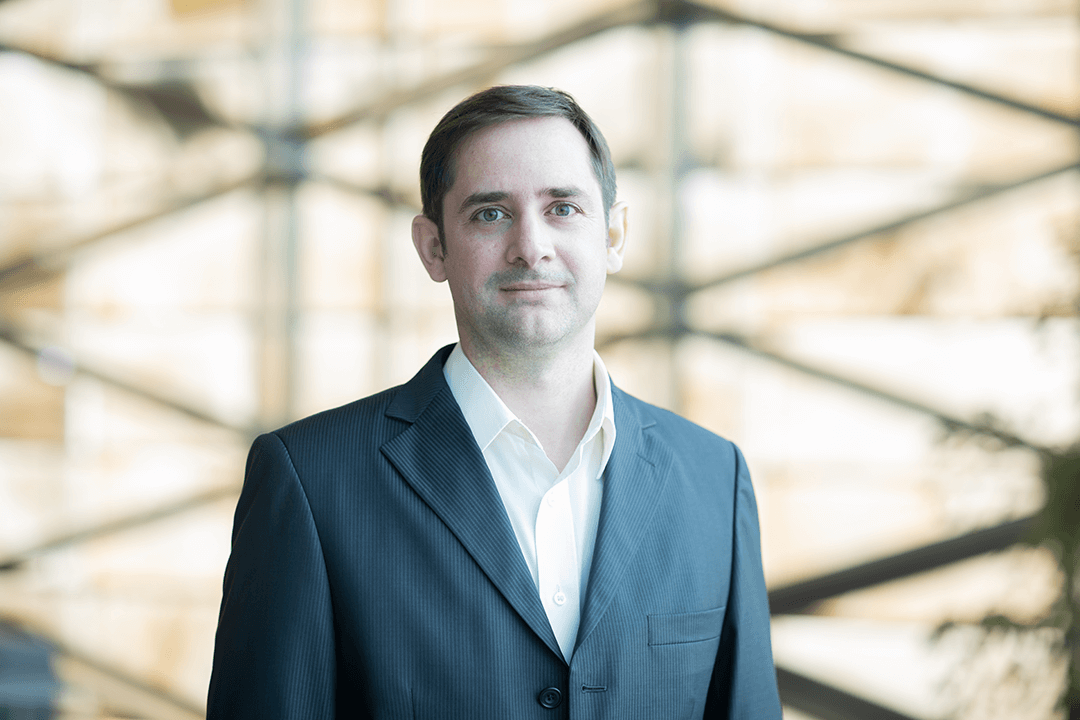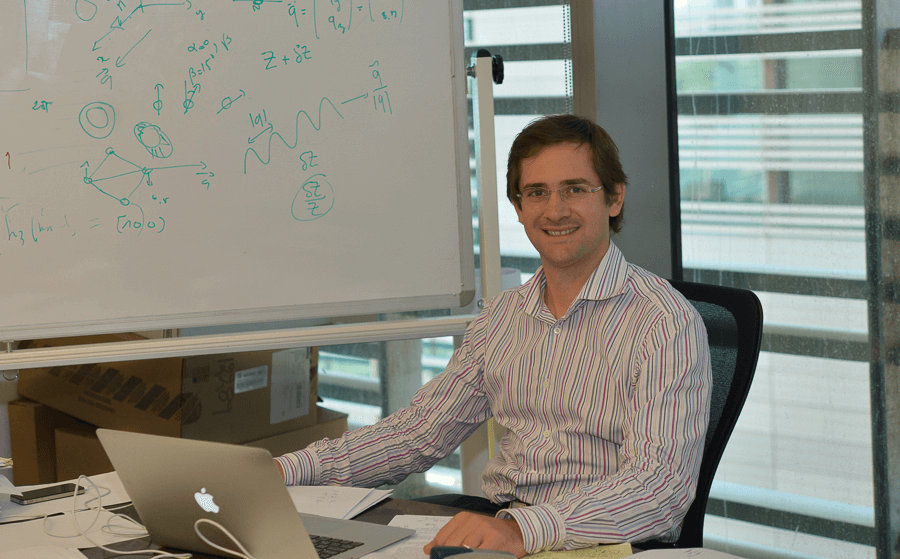Sharing and communicating science

KAUST Associate Professor Aurelien Manchon will be the prestigious Wohlfarth Lecturer at the Magnetism 2020 conference, which will take place in April next year in the U.K. File photo.
By A. Ortega, KAUST News
KAUST Associate Professor Aurelien Manchon was recently appointed as the Wohlfarth Lecturer for the Magnetism 2020 conference, which is organized by the Institute of Electrical and Electronics Engineers (IEEE) UK Magnetic Chapter and the Institute of Physics. The conference will take place from April 20 to 21, 2020, in Sheffield, U.K.
The Wohlfarth Lecture is given annually by an outstanding researcher who has contributed significantly to the field of magnetism. Manchon was chosen from a pool of international mid-career researchers who are approaching the peaks of their scientific careers. Previous Wohlfarth Lecturers include highly awarded physicists such as Peter Grünberg (lecturer in 1993), who won the Nobel Prize in Physics in 2007, and Stuart Parkin (lecturer in 2006), who received the Millennium Technology Prize in 2014.
"It is remarkable that this recognition is in fact a lecture to be delivered to a broad audience; it emphasizes that science is truly something meant to be shared and communicated, and that pedagogy is also part of science," Manchon stated.
The Wohlfarth Lecture Series began in 1989 to acknowledge the contribution of Professor Eric P. Wohlfarth in the study of magnetism. Wohlfarth was a theoretical physicist who contributed to the understanding of magnetic properties.
"[Wohlfarth] developed [a] pioneering understanding of fundamental magnetic mechanisms that serve as bedrock for current data storage and sensing technology," explained Manchon.
The lecture series include topics related to broad areas of physics and magnetism, including spin transport, an area in which Manchon specializes.

Associate Professor Aurelien Manchon focuses his KAUST research on spintronics, or the electronics based on the intrinsic spin of electrons and their associated magnetic moment. File photo.
At KAUST, Manchon studies spintronics, or the electronics based on the intrinsic spin of electrons and their associated magnetic moment. Spin is a fundamental quantum property of electrons, and it is also at the basis of the cutting-edge research area of spintronics, with applications in the development of high-speed and energy-efficient microelectronics technology.
"By trying to comprehend the nature of fundamental spin physics in close connection with experimental progress, we have identified novel manners to enhance the functionality of magnetic devices. [The] science I have been working on requires a profound understanding of quantum phenomena in condensed matter and nourishes new ideas in the field of advanced memory applications," Manchon noted.
"My nomination for this award is associated with my contribution to the development of spin-orbitronics, a field of research that exploits the intimate connection between the internal rotation of electron (their spin) and their momentum to conceive novel devices," he continued. "The phenomenon I am mostly associated with is the so-called 'spin-orbit torque,' a new means to manipulate magnetization using this intimate connection."
Being a Wohlfarth Lecturer is a great honor for physicist members of the magnetism community, Manchon said.
"[The Wohlfarth Lecturer] recognition stands out as an acknowledgement of the intense work achieved [over] the past decade. Following Wohlfarth's spirit, [this award highlights] the value and importance of fundamental research for applied science," he stated. "I expect this award will attract the attention of the community on the applied physics research conducted at KAUST and encourage students, postdocs and faculty abroad to engage with us on this great adventure."

